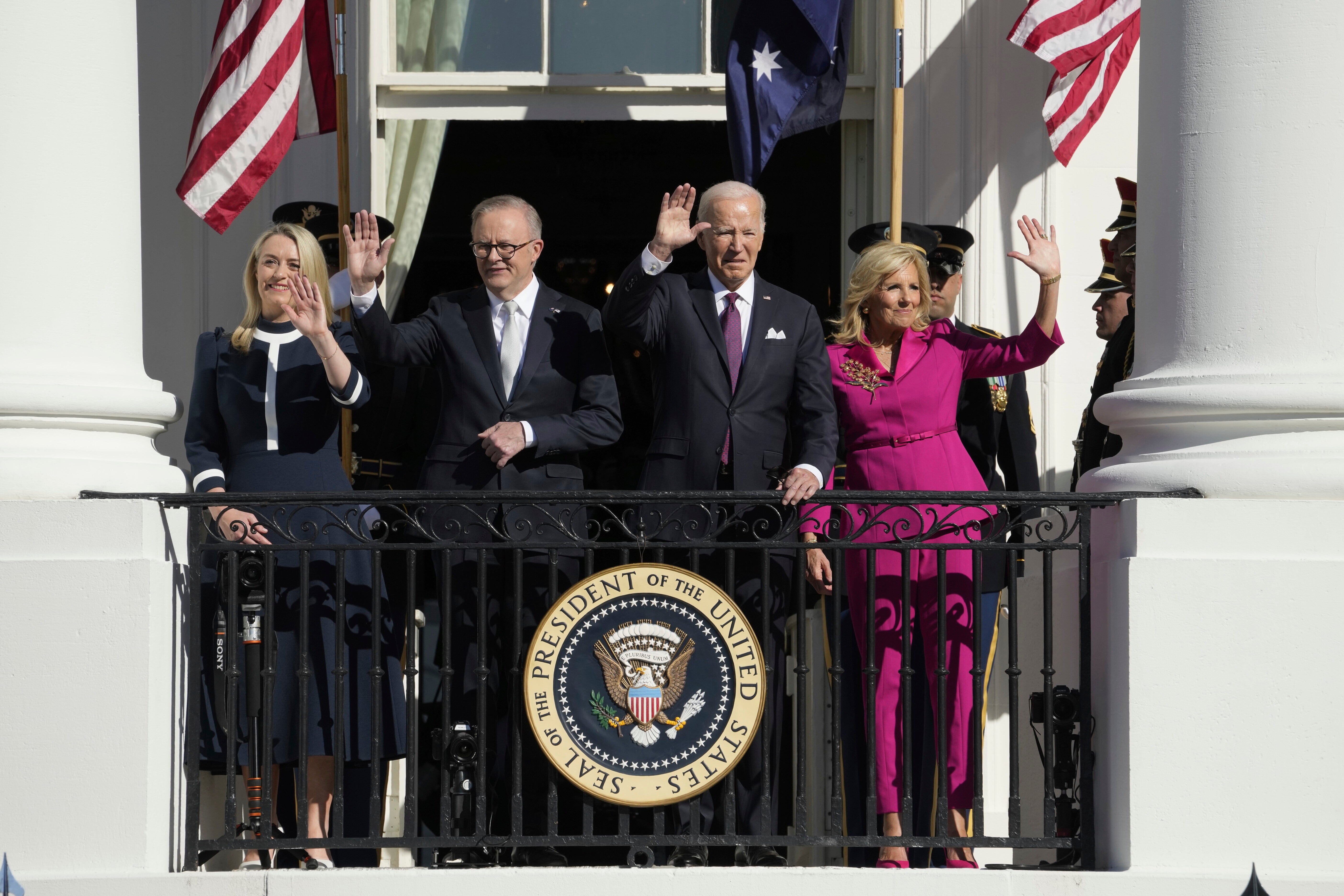White House dinner for Australia offers comfort food, instrumental tunes in nod to Israel-Hamas war
The White House is hosting a state dinner to celebrate U.S. relations with Australia while paying heed to the death and suffering unfolding in the Middle East

With a menu of “comforting” food and instrumental sounds rather than dance party music, the White House set out Wednesday to throw a state dinner that balanced the desire to celebrate ties to a close U.S. ally with an effort to strike a measured tone at a time of mounting death and suffering unfolding in the Middle East.
Up to 350 guests had returned RSVPs and claimed seats for the fourth White House state dinner of President Joe Biden's term, this one honoring Australian Prime Minister Anthony Albanese.
The B-52s, an American new wave band, had originally been lined up to entertain guests after dinner. But first lady Jill Biden said the White House made “ a few adjustments ” to the entertainment at a time "when so many are facing sorrow and pain.” She made no direct reference to the Israel-Hamas war sparked by the militant group's surprise Oct. 7 attack on southern Israel, or Russia's continued aggression against Ukraine.
Guests now will no longer rock out to B-52s hits like “Love Shack” and “Roam.” Instead, U.S. military bands will provide instrumental tunes while B-52 band members attend the dinner as guests, for dinner courses of farro and roasted beet salad, butternut squash soup and sarsaparilla-braised short ribs. Dessert will be hazelnut and chocolate mousse cake with creme fraiche ice cream.
The White House said postponing or canceling Albanese's visit was not an option, casting his overdue engagement with Biden as part of the important diplomatic work that a U.S. president must undertake with allies, even while much of the world's attention is trained on the crisis in the Middle East.
“Nurturing our partnerships and relationships with our allies is critically important, especially in these tumultuous times,” the first lady said Tuesday. “Food is comforting, reassuring and healing, and we hope that this dinner provides a little of that as well.”
Biden and Albanese were scheduled to meet last May during the president’s trip to the Indo-Pacific, but Biden canceled his stops in Australia and Papua New Guinea so he could return to Washington for crucial budget talks with Congress. He then invited Albanese to Washington for an official state visit. It is the highest diplomatic honor, bestowed only on America's closest allies.
Biden also has honored the leaders of France, South Korea and India with state visits.
Dinner will be held in a temporary pavilion on the White House lawn decorated in pastel shades meant to evoke the feel of Australian spring, the current season Down Under, and American autumn.
The first lady continued her practice of inviting an outside chef to work with White House staff on the menu. She selected Katie Button, chef and co-founder of Curate, an acclaimed restaurant in Asheville, North Carolina, who said the invitation was “an incredible honor and true privilege.”
Before dinner, Jill Biden and Jodie Haydon, Albanese's partner, toured the National Institutes of Health Clinical Center in Bethesda, Maryland, to see how the National Cancer Institute supports pediatric cancer research, including through collaborations with researchers in Australia.
Bookmark popover
Removed from bookmarks